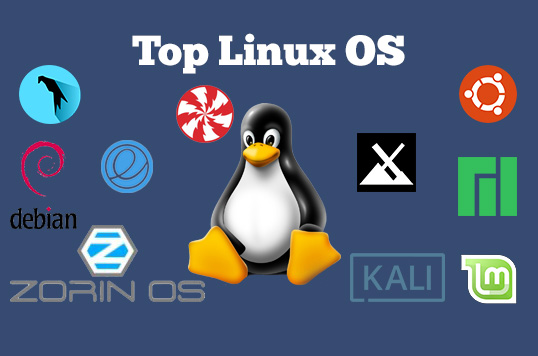Choosing the Right Linux OS for Your VPS: A Comprehensive Guide
Choosing the Right Linux OS for Your VPS: A Comprehensive Guide

When setting up a Virtual Private Server (VPS), one of the first decisions you’ll make is choosing the right Linux operating system (OS). The OS you select can impact your server’s performance, security, and ease of management. With so many options available, it’s important to choose an OS that best suits your needs and preferences. In this guide, we’ll explore key factors to consider and review some of the most popular Linux distributions for VPS hosting.

Key Factors to Consider
1. Stability and Support
- Stable Releases: For production environments, stability is crucial. Look for an OS with a stable release cycle and long-term support (LTS) options. LTS versions receive regular updates and security patches, reducing the risk of unexpected issues.
- Community and Professional Support: A strong community and professional support can be invaluable. Consider whether the OS has extensive documentation, active forums, and available commercial support.
2. Performance and Resource Usage
- Resource Efficiency: Different distributions have varying resource footprints. For resource-intensive applications, choose an OS known for its efficiency. Minimalist distributions may offer better performance with fewer system resources.
- Compatibility with Software: Ensure that the OS you choose is compatible with the software and applications you plan to run. Some distributions have better support for certain applications or server environments.
3. Ease of Use and Administration
- User-Friendliness: If you’re new to Linux or server management, consider an OS with a user-friendly interface and straightforward configuration. An OS with good default settings and easy-to-use management tools can simplify administration.
- Configuration and Customization: Some distributions offer advanced configuration tools and a high degree of customization. If you need a tailored environment, choose an OS that provides the flexibility you require.
4. Security
- Built-in Security Features: Look for distributions with strong security features and practices. Regular updates, security patches, and tools for securing the server are essential for maintaining a secure environment.
- Community Vigilance: An active community helps in quickly identifying and addressing security vulnerabilities. An OS with a large user base is more likely to have prompt updates and fixes.
Popular Linux Distributions for VPS Hosting

1. Ubuntu
Overview: Ubuntu is one of the most popular Linux distributions for VPS hosting, known for its ease of use and extensive support.
- Key Features:
- Regular updates with Long Term Support (LTS) options.
- Large repository of pre-built packages.
- Active community and comprehensive documentation.
- Best For: Beginners and developers who want a balance between stability and cutting-edge features.
2. CentOS
Overview: CentOS provides a stable, enterprise-grade environment by mirroring Red Hat Enterprise Linux (RHEL).
- Key Features:
- Known for its stability and long-term support.
- Ideal for enterprise environments.
- Compatibility with RHEL software and tools.
- Best For: Enterprises and users familiar with RHEL who need a stable and reliable server environment.
3. Debian
Overview: Debian is renowned for its stability and extensive package repository. It’s a great choice for users who prioritize reliability.
- Key Features:
- Highly stable with a rigorous testing process.
- Large repository of software packages.
- Flexibility with different release branches (stable, testing, unstable).
- Best For: Users who need a highly stable environment and have specific software requirements.
4. Fedora
Overview: Fedora is known for its cutting-edge features and rapid release cycle, making it a great choice for users who want the latest technologies.
- Key Features:
- Regular updates with the latest software and technologies.
- Active community and strong integration with Red Hat technologies.
- Best For: Users who want to work with the latest technologies and are comfortable with frequent updates.
Conclusion
Choosing the right Linux OS for your VPS involves evaluating your specific needs, preferences, and the characteristics of each distribution. Consider factors like stability, performance, ease of use, and security when making your decision. By selecting an OS that aligns with your requirements, you can ensure a smooth and efficient server experience.
Feel free to share your experiences or ask questions about choosing a Linux distribution for your VPS in the comments below. Happy hosting!
